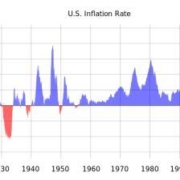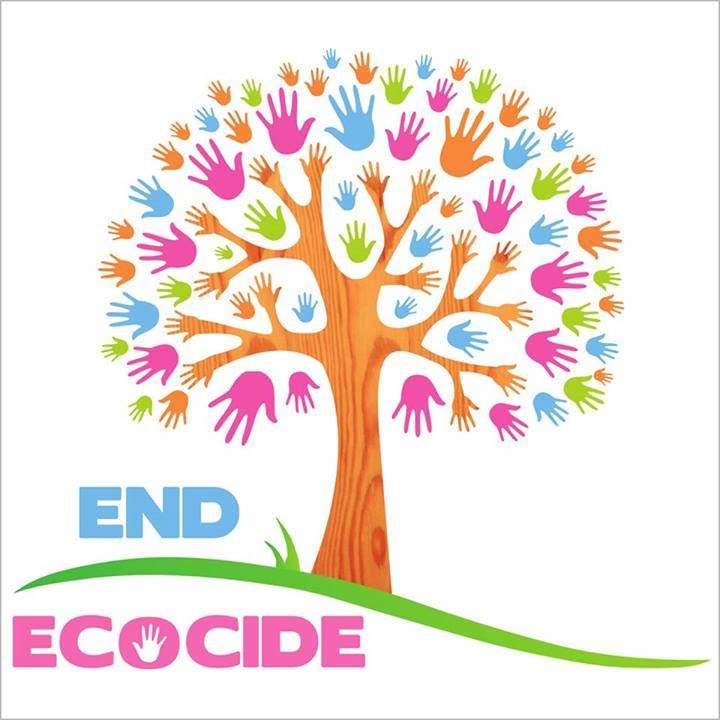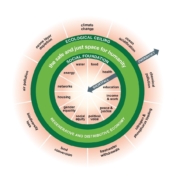A Business Built for Resilience
by James Magnus-Johnston
What does business look like in a steady state economy? I’m often asked whether or not a steady state economy would somehow lead to the stagnation of free enterprise. Yet all around us today, we’re witnessing the flourishing of “social enterprise,” a business model designed to maximize human and environmental wellbeing rather than accumulate profits for shareholders. From not-for-profit and cooperative models to the birth of the B Corp (benefit corporation), we find ourselves in the midst of a profound shift in business–away from growth and profit as an organizing principle, and towards one that respects the social and ecological limits to growth. With a planet under profound stress and a Ponzi-inspired economy poised for decline, there’s no harm in trying something a little different.
As policymakers waste time hand-wringing about embracing alternatives to growth, social enterprise provides individuals and communities with the ability to demonstrate the viability of the post-growth paradigm. Measuring social and ecological outcomes can be challenging, but some models (such as the B Corp) have adopted a specific method to measure outcomes using a point-based system. Others are using simple tools to reduce waste and ensure a fairer, more equitable working environment.

(Public Domain)
I have recently been involved in starting a pair of social enterprises, which stand as humble examples of business models for resilience rather than growth. The first is RISE Urban Incubator, which promotes and mainstreams innovations to reduce waste; the other is Fools & Horses, a coffee shop with a triple bottom line. Both businesses have been structured according to a relatively simple principle–do more good than harm–by tackling problems such as inequality and environmental degradation. Fools & Horses was named after the beloved British sitcom Only Fools and Horses, about a group of people who spend all their time trying to come up with “get rich quick schemes” and, ironically, work all the time. What better way is there to describe an economy designed for growth-at-all-costs?
Our Fools & Horses wants to demonstrate the benefits of a more flexible, equitable work arrangement for its employees. Workers earn a living wage when they join us, are invited to have a say in how the business should be run, and are given the opportunity to become owners. Worker-owners look forward to more than the accumulation of money and a periodic hike in their hourly rate. They are given greater autonomy in their work, freedom to experiment and innovate according to their talents, and enough flexibility in their schedule to pursue other interests or spend time with family and friends. Autonomy and flexibility are not just tolerated, they are encouraged.
More interestingly, perhaps, the coffee shop is designed to provide the incubator with the cash it needs to experiment with projects that systemically reduce waste, including the use of permeable pavement and solar technology. Any waste streams we do have are audited so the businesses will offset more waste and emissions than they create.
The businesses have also been designed to provide benefits to the local economy by keeping dollars circulating locally. Fools & Horses is designed to re-localize the economy wherever possible by supporting budding entrepreneurs in the local food industry, including farmers, bakers, craft brewers and roasters, and chefs. Eventually, we hope to help foster a network of local suppliers, which also helps reduce fossil fuel requirements. Each of our producers offers only the highest-quality products, fostering an economy of quality rather than an economy of quantity.
There are other sustainable business models out there, and people doing far more important and captivating things to shift the economy in a new direction. But this is one example of a small effort to demonstrate the shift in thinking at the macro level. One of the other, less intangible things Fools & Horses will foster is a sense of conviviality and good living. In Dutch, it’s called “gezellig,” and in German, it’s called ‘gemütlichkeit,’ both of which connote a sense of warmth, coziness, and belonging. In a steady state economy, what we need to accomplish above all else is the re-connection of people with one another. Perhaps it says more about the present state of business–and the prevalence of monopolies–that it’s considered novel to do so.








I hate to be a cynic, but I am always skeptical when it comes to a coffee shop being an example of what businesses should strive to become, especially if your primary product cannot be grown locally, and the main reason it is drank is to feed an addiction for caffeine. Two criteria that in my mind anyway are in no way what a sustainable business is really about. So putting in rain gardens, paying workers living wages, and other sorts of things may be better than most coffee shops out there, but providing goods from resources obtained locally that meet the communities real needs and skip the profit part of the bottom line need to come first. My thoughts for what they are worth.
Sure, there are more interesting and important things happening out there. That said, I think ‘hard-line’ thinking — lecturing others on their vices and declaring ourselves paragons of virtue — makes it hard to celebrate victories that are deliberately moving us in a different direction. Some measure of agricultural localization is critical, but perhaps it’s too soon (or misplaced) to tell the whole world to give up coffee in favour of locally-grown dandelion tea.
“Measuring social and ecological outcomes can be challenging …”, plus “Others are using simple tools to reduce waste and ensure a fairer, more equitable working environment.”
… Much needed and to be applauded goals as are these:
“Both businesses have been structured according to a relatively simple principle–do more good than harm–by tackling problems such as inequality and environmental degradation.”
… all together with workers permitted input and opportunity to become part owners of the business, including policies of autonomy and flexibility. The focus on waste reduction and emission rates are likewise good business models. However, I see a problem …
I can certainly see that not providing an automatic wage hike could and would arrest inflation – a good thing – but only if the rest of the world does likewise. If it does not, then these workers are at risk of falling below the poverty line, unable to afford the basics.
The principle is great and the more who adopt it the better, as, obviously, ground is being made in reducing our anthropological footprint. Nevertheless, to really reduce our impact upon our planet, we must urgently address global population growth – the real demon, more than anything else. If every business around the globe were to be operated similarly as the above two, how much impact will it have on emissions over time, over the long term future?
The point is, babies will still be being born at the same rate, the rate of population growth will remain unchanged and consequently the rate of growth in consumption unchanged and accordingly the growth in production rates will continue to reflect the growth in population, all of which impact upon our planet and all of which are driven by population growth.
I honestly believe that although these business models may be desirable – (less important that they reflect socialism or communalism, but that they commit to a reduction in eco damage) – the inescapable truth is that business alone, has no capacity to reduce global growth – unless population growth is tackled first. If it is not, then the demands made upon the planet will remain the same, such demands always governed by our rate of consumption, which is obviously governed by our rate of population growth, whatever the business models.